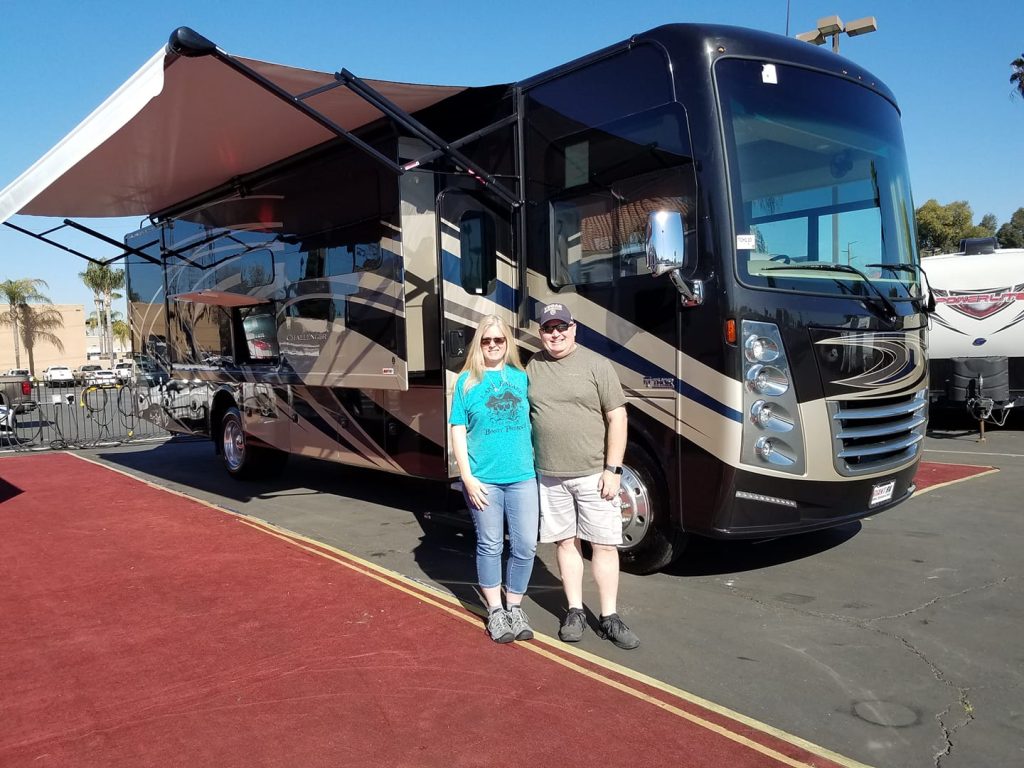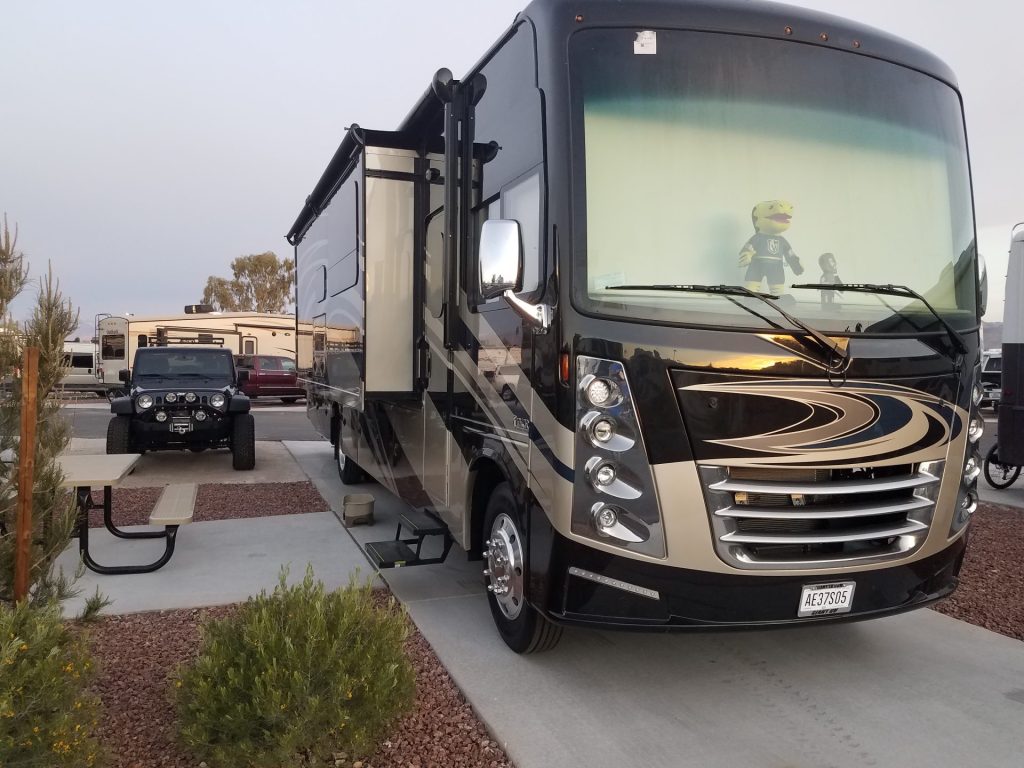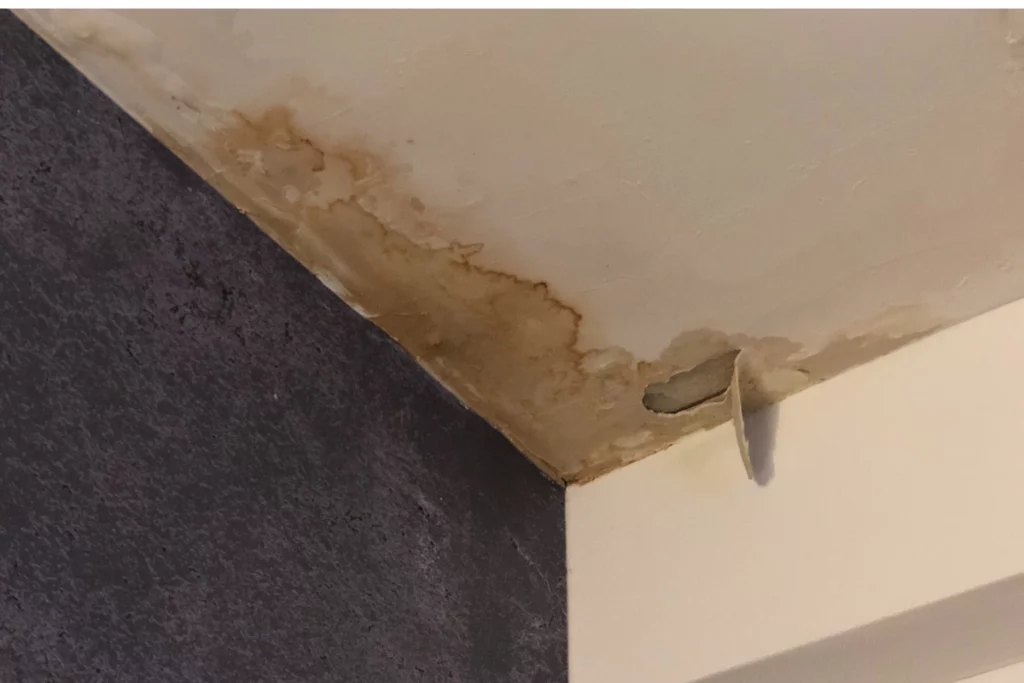RV inspections are the key to ensuring safety and reliability on the road. An RV inspection should be high on your priority list when in the market for a new RV. When it comes to purchasing or maintaining an RV, it’s crucial to have a thorough inspection performed by a qualified professional. In this article, we’ll delve into the importance of RV inspections, the role of RV inspectors, and how to find the right inspector for your needs.
One thing we’ve learned in 4+ years of Full Time RVing is that RVs are just thrown together and take a beating. We sort of had an idea of that when we were first RV shopping and would see pieces of trim not attached and other easily identifiable items that needed to be addressed before we even thought about making a purchase. Right away we knew no matter what we bought we were going to treat it like we were buying a home. (After all, we’re going to be living in it.) You wouldn’t buy a home without a professional inspection and we don’t think you should buy an RV without one either.
This post contains affiliate links. As a participant in Amazon Associates and various affiliate programs, we are compensated when qualifying purchases are made through our referral links at no additional cost to you. Full Disclosure
We do all our trip planning with RV Life Trip Wizard. RV Trip Planning Made Simple! RV Life Trip Wizard is by far the best RV route planner we’ve found. Get your 7 day Free Trial
Why RV Inspections Matter
RV inspections are crucial for several reasons. Firstly, they ensure your safety and the safety of your passengers. RVs are complex vehicles that require regular maintenance and upkeep to operate safely. We like to say they are a rolling 7.5-magnitude earthquake going down the road. An inspection can identify any mechanical issues or safety hazards that may pose a risk while on the road. This includes checking the engine, brakes, tires, suspension, and other vital components to ensure they are in good working condition.

Secondly, RV inspections help you avoid unexpected repair costs. By thoroughly examining the vehicle, an inspector can identify potential problems before they escalate into major issues. This allows you to address them proactively, saving you from costly repairs later on. Inspections can uncover hidden damage, leaks, or structural issues that may not be visible to the untrained eye. Identifying these problems early can save you both time and money in the long run.
Furthermore, RV inspections can provide you with peace of mind. When you invest in an RV, whether it’s a new or used one, you want to be confident in its quality and reliability. An inspection report from a professional inspector can give you a comprehensive overview of the RV’s condition, highlighting its strengths and weaknesses. This knowledge allows you to make informed decisions about your purchase or negotiate repairs or price adjustments if necessary.

Additionally, RV inspections are particularly important when buying a used RV. While sellers may provide you with information about the vehicle’s history and maintenance records, an inspection offers an independent evaluation from an unbiased professional. It can verify the accuracy of the seller’s claims and provide you with an objective assessment of the RV’s condition.
Lastly, RV inspections can help you plan for the future. If you’re considering long-term ownership or intend to take extended trips in your RV, knowing its current state and potential future maintenance needs is vital. An inspection can provide you with insights into the lifespan of various components, helping you anticipate future repairs or replacements. This knowledge allows you to budget appropriately and avoid unexpected breakdowns during your travels.
The Role of RV Inspectors
RV inspectors play a crucial role in ensuring the safety, functionality, and overall condition of recreational vehicles (RVs). They possess specialized knowledge and skills to thoroughly assess and evaluate different aspects of an RV, providing valuable information to potential buyers or current owners. Here’s an elaboration on the role of RV inspectors:
Exterior and Interior Inspections
RV inspectors carefully examine the exterior of the RV, including its body, windows, doors, roof, and overall structural integrity. They look for signs of damage, corrosion, leaks, or any other issues that might compromise the RV’s durability and weather resistance.
Inside the RV, inspectors inspect various components such as appliances, plumbing systems, electrical wiring, and HVAC (Heating, Ventilation, and Air Conditioning) systems. They assess the functionality and condition of these systems, checking for any leaks, faulty connections, or potential safety hazards.

Mechanical and Electrical Systems
Inspecting the mechanical and electrical systems of an RV is a critical part of an inspector’s job. They thoroughly check the engine, transmission, suspension, brakes, and tires for signs of wear, damage, or malfunction. By evaluating these components, they can identify potential problems that may affect the RV’s drivability and safety.

In terms of electrical systems, inspectors verify the functionality of the RV’s battery, charging system, and power distribution. They assess the wiring for any faults or improper installations, ensuring that the electrical systems are in proper working order.
Safety Features
RVs are equipped with various safety features, and inspectors ensure that these features are fully functional. They test smoke detectors, carbon monoxide detectors, fire extinguishers, and emergency exits to ensure that they are in proper working condition. By doing so, they help safeguard the occupants of the RV against potential risks and emergencies.
Water and Plumbing Systems
Inspectors thoroughly examine the RV’s freshwater and wastewater systems, including tanks, pumps, faucets, and toilets. They check for leaks, proper drainage, and any issues that might affect the water supply or wastewater disposal. Identifying plumbing problems early on is crucial to prevent water damage and maintain the proper functioning of these systems.

Propane Systems
Many RVs use propane for heating, cooking, and powering appliances. Inspectors assess the propane tanks, regulators, and lines to ensure that they are in good condition and properly connected. They check for leaks or any potential hazards related to propane usage, ensuring the safety of the occupants and the RV.
Appliance Functionality
RVs often feature various appliances such as refrigerators, stoves, ovens, microwaves, and air conditioning units. Inspectors test the functionality of these appliances to ensure that they are in proper working order. They identify any issues or malfunctions that may require repair or replacement, providing valuable information to the owner or potential buyer.

Overall, the role of RV inspectors is to thoroughly evaluate all aspects of an RV and provide detailed reports on its condition. Their expertise helps buyers make informed decisions and assists current owners in identifying and addressing any problems or maintenance needs. By ensuring the safety, functionality, and overall condition of RVs, inspectors contribute to a positive and enjoyable RVing experience.
Finding the Right RV Inspector
Finding the right RV inspector is crucial to ensure a thorough and reliable inspection of your recreational vehicle. To help you in the process, here are some key steps to follow:
Research Online
A good starting point is searching for an NRVIA Inspector. The NRVIA provides certification and credentials for professional RV inspectors across North America. Once you find inspectors in your area visit their websites to gather information about their services, qualifications, and customer reviews. Pay attention to their areas of specialization and expertise.

Check Credentials
Look for RV inspectors who hold certifications from reputable organizations such as the National RV Inspectors Association (NRVIA). These certifications indicate that the inspector has undergone training and met certain standards in the field.
Experience Matters
Consider RV inspectors who have extensive experience in the industry. Inspectors with a long history of working with RVs are more likely to have in-depth knowledge of various RV systems, components, and common issues. They can provide valuable insights and identify potential problems more effectively.
Request Sample Reports
To assess the level of detail and comprehensiveness provided by prospective inspectors, ask them for sample inspection reports. A thorough inspection report should cover all major RV systems, including electrical, plumbing, HVAC, chassis, appliances, and structural components. Look for reports that are clear, well-organized, and provide specific recommendations.

Seek Recommendations
Reach out to fellow RV enthusiasts, local RV clubs, or online communities dedicated to RVing. These sources can provide valuable recommendations based on their personal experiences with RV inspectors in your area. Their insights can help you narrow down your options and find reputable inspectors.
Interview Prospective Inspectors
Once you have a shortlist of potential RV inspectors, consider contacting them directly to ask specific questions about their inspection process, experience, and any additional services they may offer. This interaction can give you a sense of their professionalism, communication skills, and willingness to address your concerns.

Compare Pricing
While cost shouldn’t be the sole determining factor, it’s important to compare the pricing of different RV inspectors. Keep in mind that an exceptionally low price may indicate subpar services, while an unusually high price doesn’t necessarily guarantee the best inspection. Look for a balance between affordability and quality.
Check for Insurance
Ensure that the RV inspector you choose has liability insurance. This coverage protects you in case any damage occurs to your RV during the inspection process.
By following these steps, you can increase your chances of finding a qualified and reputable RV inspector who can provide a comprehensive inspection and help you make an informed decision about your RV purchase or maintenance.
The Benefits of Professional RV Inspections
Investing in a professional RV inspection offers several benefits that can greatly enhance your RV ownership experience. Here are some elaborations on the advantages mentioned:
Peace of Mind
When you invest in an RV inspection conducted by a qualified professional, you can rest assured that your vehicle has undergone a thorough evaluation. This knowledge provides peace of mind, allowing you to enjoy your RV adventures with confidence, knowing that potential issues have been identified and addressed.

Cost Savings
One of the significant advantages of an RV inspection is the potential for cost savings in the long run. By having a comprehensive inspection performed, you can identify any existing or potential issues early on. This early detection enables you to address problems before they worsen and become more expensive to fix. Furthermore, if you are purchasing a used RV, an inspection report can highlight any necessary repairs or maintenance, providing an opportunity for negotiation and potentially saving you money.
Safety Assurance
Your safety and the safety of your passengers should always be a top priority when it comes to RV ownership. A professional RV inspection ensures that your vehicle is thoroughly examined for any safety hazards or mechanical issues. By addressing these concerns promptly, you can mitigate the risk of accidents or incidents that could compromise your well-being.
Negotiation Power
When purchasing a used RV, or any RV for that matter, having a detailed inspection report in hand can give you an advantage in negotiations. The report can provide documented evidence of any necessary repairs or maintenance, allowing you to negotiate a fair price based on the estimated costs involved. This gives you leverage and ensures that you are getting the best value for your investment.

Knowledge and Education
Hiring an RV inspector not only provides you with a comprehensive evaluation of your vehicle but also offers an opportunity to learn more about its systems, maintenance requirements, and potential upgrades. The inspector can educate you about the proper care and operation of your RV, enabling you to make informed decisions and take proactive steps to maintain its longevity and performance.
When the inspection was done the inspector went over the detailed list of everything he found and showed us things to keep an eye on. He also went into more detail than the dealership did, on how to use the RV systems. This alone was worth the price of the inspection as a newbie!
Insurance and Warranty Compliance
In some cases, insurance providers and warranty companies may require an RV inspection to validate coverage. By investing in a professional inspection, you can ensure compliance with these requirements and safeguard your insurance coverage or warranty. Having a thorough inspection report provides the necessary documentation to demonstrate the condition of your RV and validate its eligibility for coverage.
Overall, investing in a professional RV inspection brings numerous benefits, including peace of mind, potential cost savings, safety assurance, negotiation power, knowledge enhancement, and compliance with insurance and warranty requirements. It is a wise investment that can significantly enhance your RV ownership experience and protect your investment in the long run.
Common Objections to Inspections
Why Hiring an Independent RV Inspector is Essential for a Worry-Free Purchase
When it comes to purchasing an RV, you might hear objections about the necessity of hiring an independent inspector. Some argue that the dealership’s inspection should suffice, saving you time and money. However, it’s crucial to consider who the dealership’s inspection truly benefits. Is it designed to provide you with comprehensive knowledge about the RV you’re about to purchase? Or is it primarily intended to protect the dealership’s interests?
Dealership Inspections: Who Benefits?
Dealership inspections, while well-intentioned, often fall short of providing a thorough evaluation of the RV’s condition. The technicians assigned to perform these inspections might lack comprehensive training and expertise in inspecting recreational vehicles. Furthermore, it raises questions about the level of transparency and accountability.
Will the dealership provide you with a detailed report, complete with photographs and videos, outlining the findings and recommendations? Unfortunately, some dealerships even charge exorbitant fees for their inspections, far surpassing what an independent certified RV inspector would charge. I personally would not pay for the dealership inspection.
The Importance of Qualified RV Inspectors
Regrettably, not all RV inspectors possess the necessary qualifications and expertise to thoroughly inspect a recreational vehicle. It is essential to ensure that anyone claiming to be an RV inspector can demonstrate proper training and certification in all aspects of RV inspections. Some dealerships have encountered inspectors who spend less than an hour on the inspection, take a few pictures, and leave.
Naturally, such inspections fail to provide useful information to the customer. In recent times, a prominent website for listing RVs started offering inspections, boasting their inspectors’ “ASE Certification.” However, it is worth noting that the National Institute for Automotive Service Excellence (ASE) does not offer any certification specifically for RV inspectors.
Dispelling the Notion that RV Inspections are Unnecessary
Some individuals, including certain RV dealers, argue against the need for RV inspections, considering them a waste of time. However, it is important to recognize that resistance to innovative ideas and change can hinder progress. Refusing to acknowledge the benefits of an RV inspection limits the buyer’s ability to make an informed decision.

In the past, home inspections were unheard of, but now they are standard practice and often mandatory when purchasing a home. Similarly, buying an RV should not be any different in terms of ensuring a thorough inspection.
This is what the dealer we purchased from tried to tell us. They said they already do their PDI (Pre-Delivery Inspection) and that it should suffice.
The Flawed Alternative: “Take the RV Camping and Make a List”
One common objection is the suggestion that buyers should take the RV camping first, identify any issues, and then inform the dealer. However, this approach is flawed and impractical. No buyer wants to discover major problems with their newly purchased RV while already on their first trip. Even new RVs can have significant defects.
Once the RV is in your possession, you become just another customer in need of service. Dealerships are most motivated to address issues before the sale, as each day the RV sits on their lot accrues interest. Consequently, they are more inclined to prioritize prompt repairs and ensure customer satisfaction.

We’ve heard horror stories of people taking their first trip in the new RV only to have issues. When they try to get the RV back into the dealership for repairs they are told of months-long wait times. That’ll put a damper on the camping season real quick. Get your RV inspected prior to taking possession.
DIY RV Inspections
Performing a DIY RV inspection can be a helpful step in assessing the condition of a recreational vehicle before purchasing or using it. While it’s important to emphasize that hiring a professional RV inspector is highly recommended for a comprehensive evaluation, a DIY inspection can serve as a supplement to their findings. Here are some areas to focus on during your own inspection:
Visual Examination
Start by inspecting the RV’s exterior for any signs of damage, such as dents, scratches, or rust. Look for any signs of water leakage, which may appear as stains or discoloration.
Check the interior for water damage, including stains on walls or ceilings, soft spots on the floor, or musty odors indicating potential mold growth. Look for signs of pests, such as droppings or chewed wires.

Examine the roof, windows, and doors for any cracks, gaps, or signs of damage that may allow water or pests to enter the RV.
Functional Tests
Test all lights, both interior and exterior, to ensure they are functioning correctly. Replace or have replaced any burnt-out bulbs.

Operate all appliances, including the stove, oven, refrigerator, microwave, and air conditioning unit, to confirm that they are in working order.
Check the water and plumbing systems by running faucets, flushing toilets, and inspecting for any leaks, water pressure issues, or unusual noises.
Tire Inspection
Examine the tires for signs of wear, such as uneven tread patterns or low tread depth. Look for cracks or bulges on the sidewalls, which may indicate tire damage.
Check the tire pressure using a gauge and ensure it aligns with the manufacturer’s recommendations. Adjust the pressure if necessary.

My recommendation for anyone buying a trailer is to make sure it has good-quality tires on it. RV manufacturers are known for using the cheapest products. I have seen countless complaints of people having a blowout after just a short drive. The tire tears up their RV and they are out a big chunk of money. Be proactive, spend the money on good quality tires up front, and reduce the risk.
Electrical and Battery Check
Test the battery to ensure it is holding a charge. Inspect the battery terminals and connections for any loose or corroded wires. Replace the battery if it is old or not functioning properly.

Inspect the electrical connections throughout the RV, including outlets, switches, and fuse boxes, for any loose or damaged wires.
LP Gas System
Inspect the propane tank for any signs of damage, such as dents, rust, or leaks. Check the connections and ensure they are secure.
Test the LP gas system by operating the stove burners and checking for a steady flame. Ensure that the gas lines are intact and not leaking.

It’s important to note that while a DIY inspection can provide some insights into the condition of an RV, it may not uncover all potential issues, especially those that require specialized equipment or knowledge. If you’re new like we were you may just not even know what to look for. Hiring a professional RV inspector remains the most reliable option for a thorough evaluation, as they have the expertise and tools to identify hidden problems and provide a detailed assessment of the RV’s overall condition.
Frequently Asked Questions
What does an RV inspection cover? An RV inspection typically covers a wide range of areas, including the exterior and interior components, electrical systems, plumbing systems, HVAC systems, appliances, chassis, tires, brakes, suspension, and more. The extent of the inspection may vary based on the type of RV and the specific requirements of the buyer or seller.
Who performs RV inspections? RV inspections are typically conducted by certified RV inspectors or technicians who have specialized knowledge and expertise in RV systems and structures. These professionals are trained to identify potential issues and provide an objective evaluation of the RV’s condition.
When should I get an RV inspection? It is recommended to get an RV inspection before purchasing a new or used RV to ensure you are aware of its condition and any potential problems. If you’re selling an RV, it’s beneficial to have it inspected beforehand to address any issues and provide a comprehensive report to potential buyers.
How long does an RV inspection take? The duration of an RV inspection depends on various factors, including the size and complexity of the RV, the thoroughness of the inspection, and the inspector’s experience. Generally, an inspection can take a few hours to a full day. It took about 6 hours for the inspection of our Class A Motorhome.
Will the inspector provide a written report? Yes, most RV inspectors provide a detailed written report after completing the inspection. The report typically includes information about the RV’s condition, identified issues, recommended repairs or maintenance, and an overall assessment of its safety and functionality.
Can I be present during the RV inspection? It’s generally recommended to be present during the RV inspection. This allows you to ask questions, gain a better understanding of the inspector’s findings, and address any concerns directly. Being present also gives you an opportunity to learn about the RV’s systems and maintenance requirements.
How much does an RV inspection cost? The cost of an RV inspection can vary depending on factors such as the size of the RV, the level of detail required, and the location. On average, RV inspections can range from $200 to $1200 or more. It’s advisable to check with local RV inspection services to get accurate pricing information. The inspection on our motorhome cost $500.
Can an RV inspection uncover all potential problems? While an RV inspection is thorough, it cannot guarantee the discovery of every potential problem. However, a professional inspector can identify common issues and provide you with valuable insights into the overall condition of the RV. It’s essential to discuss the scope of the inspection with the inspector beforehand to ensure your specific concerns are addressed.
Conclusion
RV inspections are crucial for ensuring the safety, reliability, and longevity of your recreational vehicle. Hiring a qualified RV inspector allows you to gain valuable insights into your RV’s condition, address any potential issues, and travel with peace of mind.
To find a reputable RV inspector, it is important to conduct thorough research. Consider their qualifications, experience, and customer reviews to make an informed decision. Investing in a professional inspection offers several benefits, including cost savings, assurance of safety, and negotiation power when purchasing or maintaining an RV.
Regardless of whether you are buying a new or used RV or simply maintaining your current vehicle, a comprehensive inspection is a worthwhile investment. By prioritizing the health of your RV, you can embark on memorable adventures with confidence and peace of mind.
It is important to note that while this article provides valuable information about RV inspections, it is always advisable to consult with professionals and adhere to manufacturer guidelines for specific maintenance and safety procedures. Following the guidance of experts will help ensure the proper care and maintenance of your RV.

By prioritizing RV inspections and seeking professional guidance, you can safeguard your investment and enjoy worry-free travels in your recreational vehicle.
Thank you for taking the time to read our article on RV Inspections. If you have any comments or questions please feel free to ask them below.
Safe Travels!




